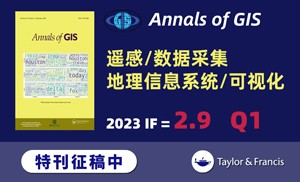当前位置:
X-MOL 学术
›
Gut Pathog.
›
论文详情
Our official English website, www.x-mol.net, welcomes your
feedback! (Note: you will need to create a separate account there.)
Proton pump inhibitors and 180-day mortality in the elderly after Clostridium difficile treatment.
Gut Pathogens ( IF 4.3 ) Pub Date : 2019-06-13 , DOI: 10.1186/s13099-019-0309-6 Evan Stuart Bradley 1 , Emily Howe 2 , Xun Wu 2 , John P Haran 1
Gut Pathogens ( IF 4.3 ) Pub Date : 2019-06-13 , DOI: 10.1186/s13099-019-0309-6 Evan Stuart Bradley 1 , Emily Howe 2 , Xun Wu 2 , John P Haran 1
Affiliation
Background
There is a reported association between proton pump inhibitor (PPI) exposure and increased risk of Clostridium difficile infection (CDI), but less is known about how this class of medications taken during treatment might influence mortality after CDI. Here we examine 180-day mortality rates in a cohort of CDI elders and its association with exposure to PPIs. We conducted a retrospective cohort study of elderly patients (> 65 years of age) diagnosed and treated for CDI in the years 2014-2016 (n = 874) in the Umass Memorial Health Care system, which represents both academic and community healthcare. Patient characteristics and medication use was extracted from the electronic medical record (EMR) and 6 month mortality data was obtained via the Center for Disease Control National Death Index. A Cox proportional hazards model was used to estimate hazard ratios associated with medication exposures and other relevant variables.
Results
Of the 874 elderly adults treated for CDI, 180-day all-cause mortality was 12.4%. Exposure to a PPI was associated with a 55% reduced risk of mortality (adjusted hazard ratio (aHR) 0.45; 95% confidence interval (CI) 0.28-0.72). In our Cox model, increasing age (aHR 1.45; 95% CI 1.14-1.84), those with severe CDI infections (aHR 1.87; 95% CI 1.22-2.88), and those with hospital acquired CDI (aHR 3.01; 95% CI 1.81-4.99) also had increased 180 day mortality risk. There were similar associations noted with both 90 day and 1-year mortality.
Conclusion
Use of PPIs during CDI treatment in elderly patients is associated with decreased 180-day mortality. Although use of PPIs has been associated with an increased risk of CDI, it appears to be protective against mortality when used during the treatment phase.
中文翻译:

艰难梭菌治疗后老年人的质子泵抑制剂和 180 天死亡率。
背景 据报道,质子泵抑制剂 (PPI) 暴露与艰难梭菌感染 (CDI) 风险增加之间存在关联,但对于治疗期间服用的此类药物如何影响 CDI 后的死亡率知之甚少。在这里,我们检查了一组 CDI 老年人的 180 天死亡率及其与 PPI 暴露的关系。我们对 2014-2016 年(n = 874)在代表学术和社区医疗保健的 Umass Memorial 医疗保健系统中诊断和治疗 CDI 的老年患者(> 65 岁)进行了一项回顾性队列研究。从电子病历 (EMR) 中提取患者特征和药物使用情况,并通过疾病控制中心国家死亡指数获得 6 个月死亡率数据。Cox 比例风险模型用于估计与药物暴露和其他相关变量相关的风险比。结果接受CDI治疗的874名老年人中,180天全因死亡率为12.4%。暴露于 PPI 与死亡风险降低 55% 相关(调整后的风险比 (aHR) 0.45;95% 置信区间 (CI) 0.28-0.72)。在我们的 Cox 模型中,年龄增加(aHR 1.45;95% CI 1.14-1.84)、患有严重 CDI 感染的人(aHR 1.87;95% CI 1.22-2.88)和患有医院获得性 CDI 的人(aHR 3.01;95% CI 1.81 -4.99) 也增加了 180 天死亡风险。90 天和 1 年死亡率也有类似的关联。结论 老年患者 CDI 治疗期间使用 PPI 可降低 180 天死亡率。
更新日期:2020-04-22
中文翻译:

艰难梭菌治疗后老年人的质子泵抑制剂和 180 天死亡率。
背景 据报道,质子泵抑制剂 (PPI) 暴露与艰难梭菌感染 (CDI) 风险增加之间存在关联,但对于治疗期间服用的此类药物如何影响 CDI 后的死亡率知之甚少。在这里,我们检查了一组 CDI 老年人的 180 天死亡率及其与 PPI 暴露的关系。我们对 2014-2016 年(n = 874)在代表学术和社区医疗保健的 Umass Memorial 医疗保健系统中诊断和治疗 CDI 的老年患者(> 65 岁)进行了一项回顾性队列研究。从电子病历 (EMR) 中提取患者特征和药物使用情况,并通过疾病控制中心国家死亡指数获得 6 个月死亡率数据。Cox 比例风险模型用于估计与药物暴露和其他相关变量相关的风险比。结果接受CDI治疗的874名老年人中,180天全因死亡率为12.4%。暴露于 PPI 与死亡风险降低 55% 相关(调整后的风险比 (aHR) 0.45;95% 置信区间 (CI) 0.28-0.72)。在我们的 Cox 模型中,年龄增加(aHR 1.45;95% CI 1.14-1.84)、患有严重 CDI 感染的人(aHR 1.87;95% CI 1.22-2.88)和患有医院获得性 CDI 的人(aHR 3.01;95% CI 1.81 -4.99) 也增加了 180 天死亡风险。90 天和 1 年死亡率也有类似的关联。结论 老年患者 CDI 治疗期间使用 PPI 可降低 180 天死亡率。









































 京公网安备 11010802027423号
京公网安备 11010802027423号